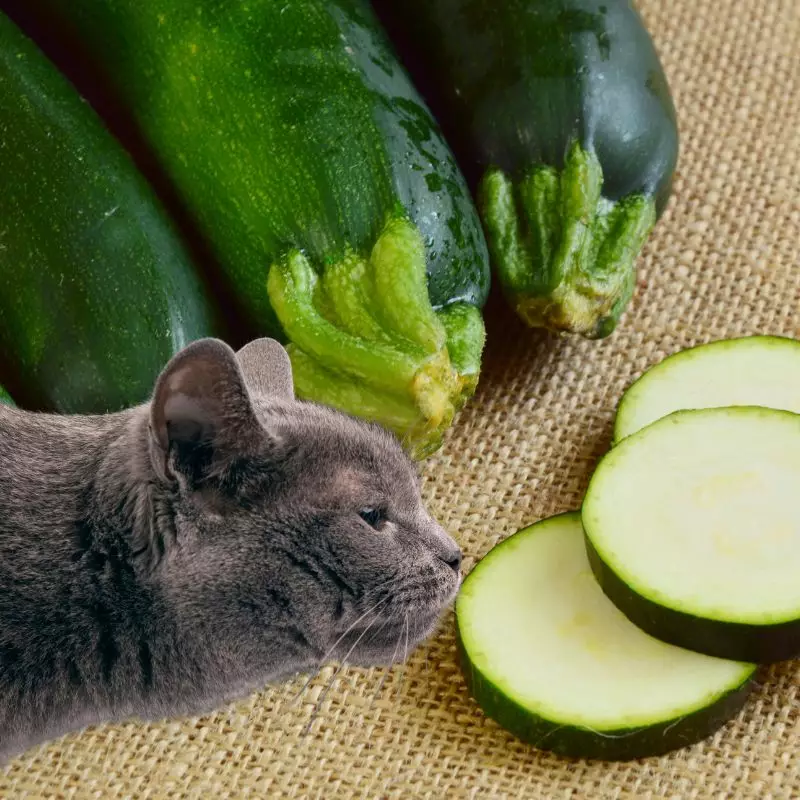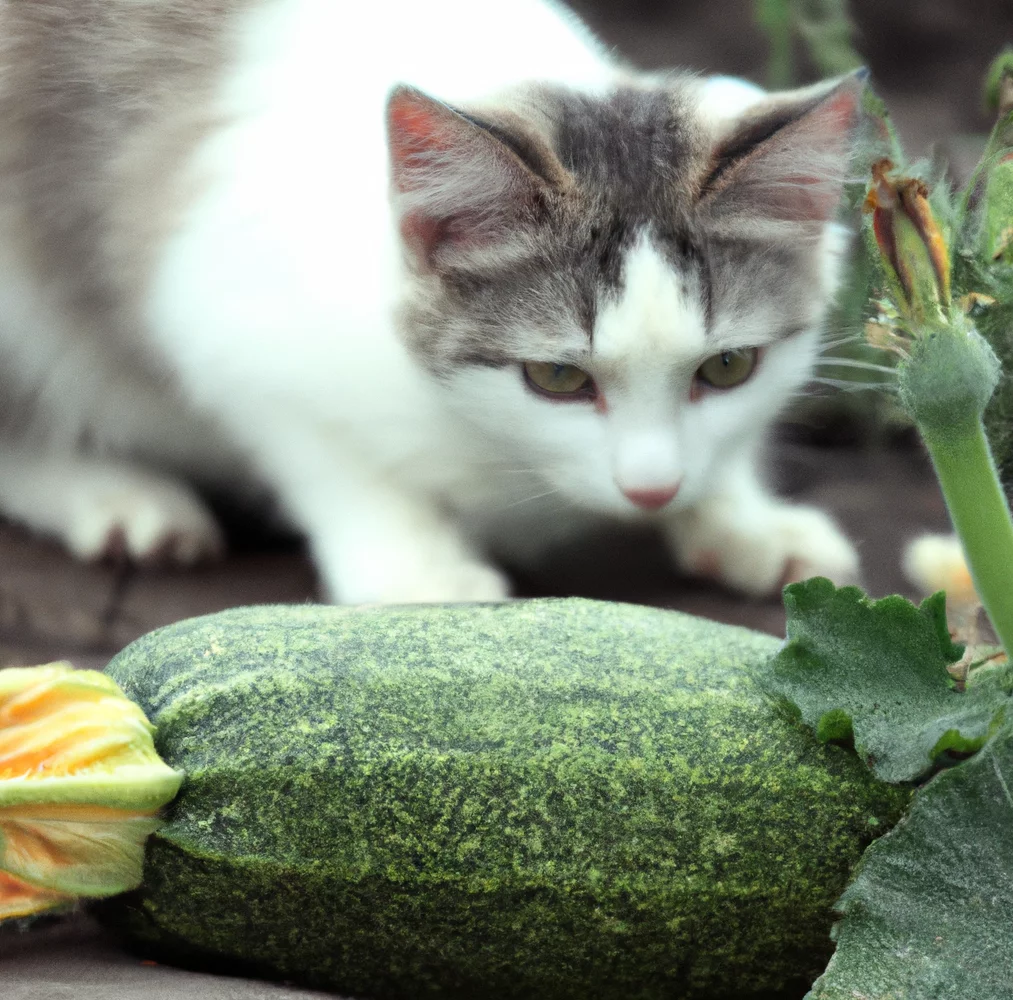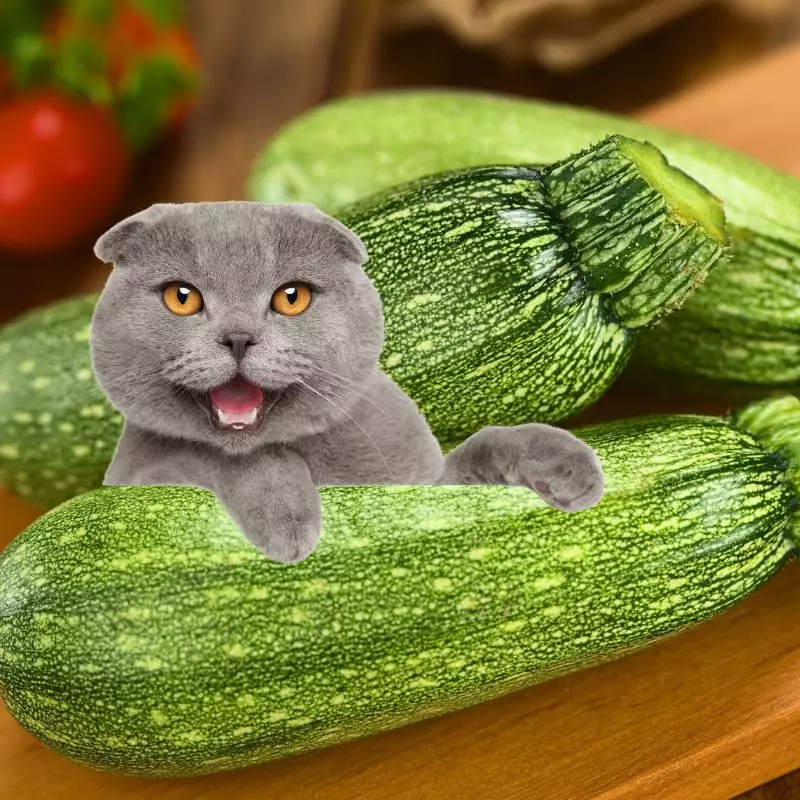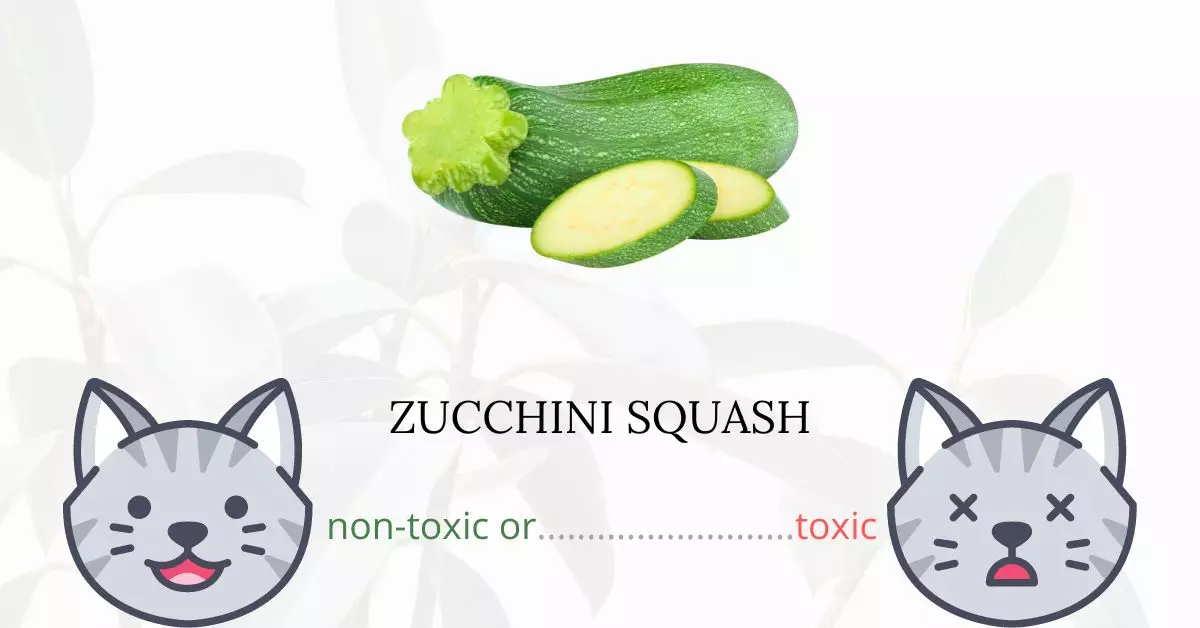Zucchini squash is not toxic for cats. In fact, it’s one of the plants that’s considered safe for our feline friends.
This article has been written in collaboration with a team of experienced DVMs (doctors of veterinary medicine). Drawing upon their expertise, and after rigorous research including references from high-authority websites such as the ASPCA and PetMD, we can provide accurate and up-to-date information on the potential risks and safety of various plants, focusing here on Zucchini Squash.
It’s noteworthy to mention that the ASPCA (American Society for the Prevention of Cruelty to Animals) classifies zucchini squash as a non-toxic plant not just for cats, but also for dogs and horses.
Can Cats Eat Zucchini Squash?

Cats can consume zucchini. Zucchini is one of the vegetables that cats can eat without problems. It is easy to chew and contains magnesium, manganese, and potassium.
While cats do not require vegetables in their diet, small amounts of zucchini can provide them with additional vitamins.
Cats can eat zucchini leaves, but it is uncommon because they are more interested in the squash itself. You can give zucchini as a treat or mix it in small amounts with its regular cat food.
While humans are omnivores who eat both plant and animal foods, your cat is an obligate carnivore. To survive, an obligate carnivore must consume animal flesh. These meat eaters also have shorter digestive systems, which are unable to break down the cellulose found in plant matter if consumed in large quantities.
Thus, it is essential to monitor your cat’s consumption of plants and remember not to feed your cat so much zucchini that they’d get an upset stomach.
What is Zucchini Squash?

The Cucurbita family includes zucchini, which has a sprawling vine and a flower that produces yellow fruit. The fruits have a mild flavor and are typically added to pasta, baked goods, soups, and fried foods.
Native to North America, zucchini squash prefers soil that is only slightly moist and has unrestricted sunlight exposure. Although it thrives in vegetable gardens, on trellises, and as a cover for exposed soil, zucchini is best suited for expansive landscapes.
Scientifically known as Cucurbita pepo cv zucchini, zucchini is simple to grow from seed, especially in warm soils. Transplanting zucchini squash is best done in the late spring, early summer, or following the last frost.
Keeping Cats Away From Zucchini Squash

Any noise can scare off cats because they are easily startled. When you clap loudly or mouth the sound “pssst,” you can get a cat to stop doing almost anything.
As an alternative, you might try stuffing a plastic water bottle with coins. Shake the bottle if the cat is trying to approach your plants.
Coffee grounds can effectively deter cats in addition to being a great fertilizer for your plants. Place the coffee grounds at the base of the plants or flowerpots. Add more grounds frequently for more effective results. If the coffee grounds begin to mold, remove them immediately.
Using onions and garlic to keep cats away from your plants can also help. Due to the strong odor, you may want to avoid using this technique inside your home.
Simply rub the plant pot edges with a fresh onion cut in half. Garlic cloves cut in half can also be planted directly in the plant pots.
Plants to Avoid For Your Cats
If you are a cat owner and unsure if the plants growing in your yard are harmful to your cats, check out this list of toxic plants for cats. You can also check our list of non-toxic plants for cats.





